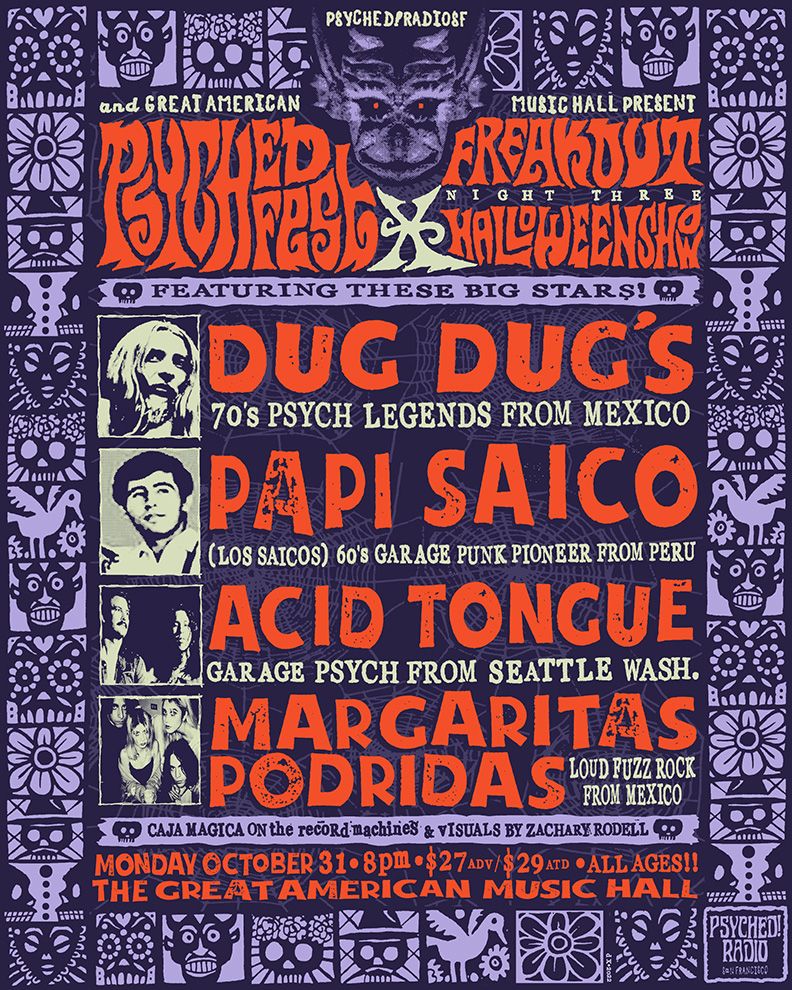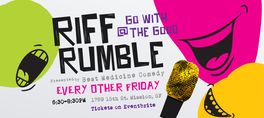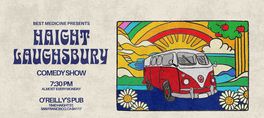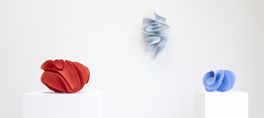Psyched! Fest Halloween w/ Los Dug Dug's & Papi Saicos
Acid Tongue, Margaritas Podridas
Los Dug Dug's
Mexican garage rock legends Los Dug Dug's were led by singer/multi-instrumentalist Armando Nava, born in Durango, Durango in 1946. At 15 he acquired his first guitar, and at 17 he joined his first band, Xippos Rock -- when their original frontman quit, Nava assumed lead vocal duties, and after graduating high school the group toured the Tijuana region, with Nava's salesman father driving their van and conducting business along the way. While on the road, Nava made the executive decision to change their name from Xippos Rock to Los Dug Dug's -- the name being the abbreviation of their home city and state -- while playing in Texas he scored copies of early Beatles records, and the band became not only to the first in Mexico to cover the Fab Four, but also the first to sing all of their material (covers and originals) in English. After an extended stint as the house band at the Tijuana strip joint Fantasitas, Los Dug Dug's relocated to Mexico City in 1966 -- a series of personnel changes were afoot, however, and soon only Nava and only vocalist Jorge de la Torre remained from the lineup that first set out from Durango. After earning a rabid fan following in Mexico City, the group signed to RCA to record their debut single, the children's television theme "Chicotito Si, Chicotito No" -- they also headlined a pair of 1967 films, El Mundo Loco de los Jovenes and Cinco de Chocolate y Una de Fresa. In all, Los Dug Dug's cut ten singles for RCA while in Mexico City, including covers of U.S. pop hits like "California Dreamin'" and "Hanky Panky." After returning to Tijuana in 1968, Los Dug Dug's -- now consisting of Nava, de la Torre, guitarist Gustavo Garayzar, bassist Genero Garcia, and drummer Jorge Torres Aguayo -- took up residence at the popular Sans Sous Ci club. After American tourist Frank Mangano caught their act, he was so impressed that he offered to bankroll a trip to New York City -- there the group played a handful of live dates and recorded a few demos, but Mangano refused to fund the $5000.00 musicians' union fees necessary to earn Los Dug Dug's the opportunity to play Manhattan's larger venues. With little choice except to return to Mexico, the group began work on its first LP for RCA Mexico, but long-simmering creative differences between Nava and de la Torre forced the latter's resignation after the album was completed, and by the time the resulting psychedelic opus Lost in My World appeared in 1971, Los Dug Dug's were essentially no more. The singles "World of Love" and "Eclipse" were nevertheless huge Latin American hits, and in 1972, Nava revived the group as a power trio -- now, with the majority of Mexican groups singing in English, he reversed the trend, performing in Spanish on 1972's Smog. For 1974's Cambia Cambia, Los Dug Dug's sported a clean-cut look in keeping with their music's evolution to more concise, melodic pop approach -- RCA did little to support the album, however, and 1975's El Loco proved their swan song. Despite endless lineup changes, Nava has nevertheless kept Los Dug Dug's an ongoing concern in the decades since -- the group most often appears at his Mexico City nightclub La Reunion. ~ Jason Ankeny, Rovi
Papi Saicos (Los Saicos)
Los Saicos is a garage rock band formed in 1964 in Lima, Peru. Their use of fast tempos, screamed vocals and aggressive riffing has led some publication to retrospectively credit them as pioneering punk rock. In a short amount of time during the 1960s, they became one of the most successful groups in their own country, fashioning a unique surf-influenced garage sound, that would anticipate certain aspects of the later punk rock movement of the 70s. In addition to composing their own songs, written by band members Erwin Flores and Rolando Carpio, they are sometimes mentioned as the first South American band to record exclusively their own material. They released six singles between 1965 and 1966, of which the best known are "Demolición", "Fugitivo de Alcatraz" and "El Entierro de los Gatos", which have become anthems in Peruvian rock and, over time, have led to the recognition of the band worldwide. Though they broke up in 1966, Los Saicos re-united in 2006, and have since continued to play occasional venues.
show less
Acid Tongue, Margaritas Podridas
Los Dug Dug's
Mexican garage rock legends Los Dug Dug's were led by singer/multi-instrumentalist Armando Nava, born in Durango, Durango in 1946. At 15 he acquired his first guitar, and at 17 he joined his first band, Xippos Rock -- when their original frontman quit, Nava assumed lead vocal duties, and after graduating high school the group toured the Tijuana region, with Nava's salesman father driving their van and conducting business along the way. While on the road, Nava made the executive decision to change their name from Xippos Rock to Los Dug Dug's -- the name being the abbreviation of their home city and state -- while playing in Texas he scored copies of early Beatles records, and the band became not only to the first in Mexico to cover the Fab Four, but also the first to sing all of their material (covers and originals) in English. After an extended stint as the house band at the Tijuana strip joint Fantasitas, Los Dug Dug's relocated to Mexico City in 1966 -- a series of personnel changes were afoot, however, and soon only Nava and only vocalist Jorge de la Torre remained from the lineup that first set out from Durango. After earning a rabid fan following in Mexico City, the group signed to RCA to record their debut single, the children's television theme "Chicotito Si, Chicotito No" -- they also headlined a pair of 1967 films, El Mundo Loco de los Jovenes and Cinco de Chocolate y Una de Fresa. In all, Los Dug Dug's cut ten singles for RCA while in Mexico City, including covers of U.S. pop hits like "California Dreamin'" and "Hanky Panky." After returning to Tijuana in 1968, Los Dug Dug's -- now consisting of Nava, de la Torre, guitarist Gustavo Garayzar, bassist Genero Garcia, and drummer Jorge Torres Aguayo -- took up residence at the popular Sans Sous Ci club. After American tourist Frank Mangano caught their act, he was so impressed that he offered to bankroll a trip to New York City -- there the group played a handful of live dates and recorded a few demos, but Mangano refused to fund the $5000.00 musicians' union fees necessary to earn Los Dug Dug's the opportunity to play Manhattan's larger venues. With little choice except to return to Mexico, the group began work on its first LP for RCA Mexico, but long-simmering creative differences between Nava and de la Torre forced the latter's resignation after the album was completed, and by the time the resulting psychedelic opus Lost in My World appeared in 1971, Los Dug Dug's were essentially no more. The singles "World of Love" and "Eclipse" were nevertheless huge Latin American hits, and in 1972, Nava revived the group as a power trio -- now, with the majority of Mexican groups singing in English, he reversed the trend, performing in Spanish on 1972's Smog. For 1974's Cambia Cambia, Los Dug Dug's sported a clean-cut look in keeping with their music's evolution to more concise, melodic pop approach -- RCA did little to support the album, however, and 1975's El Loco proved their swan song. Despite endless lineup changes, Nava has nevertheless kept Los Dug Dug's an ongoing concern in the decades since -- the group most often appears at his Mexico City nightclub La Reunion. ~ Jason Ankeny, Rovi
Papi Saicos (Los Saicos)
Los Saicos is a garage rock band formed in 1964 in Lima, Peru. Their use of fast tempos, screamed vocals and aggressive riffing has led some publication to retrospectively credit them as pioneering punk rock. In a short amount of time during the 1960s, they became one of the most successful groups in their own country, fashioning a unique surf-influenced garage sound, that would anticipate certain aspects of the later punk rock movement of the 70s. In addition to composing their own songs, written by band members Erwin Flores and Rolando Carpio, they are sometimes mentioned as the first South American band to record exclusively their own material. They released six singles between 1965 and 1966, of which the best known are "Demolición", "Fugitivo de Alcatraz" and "El Entierro de los Gatos", which have become anthems in Peruvian rock and, over time, have led to the recognition of the band worldwide. Though they broke up in 1966, Los Saicos re-united in 2006, and have since continued to play occasional venues.
Psyched! Fest Halloween w/ Los Dug Dug's & Papi Saicos
Acid Tongue, Margaritas Podridas
Los Dug Dug's
Mexican garage rock legends Los Dug Dug's were led by singer/multi-instrumentalist Armando Nava, born in Durango, Durango in 1946. At 15 he acquired his first guitar, and at 17 he joined his first band, Xippos Rock -- when their original frontman quit, Nava assumed lead vocal duties, and after graduating high school the group toured the Tijuana region, with Nava's salesman father driving their van and conducting business along the way. While on the road, Nava made the executive decision to change their name from Xippos Rock to Los Dug Dug's -- the name being the abbreviation of their home city and state -- while playing in Texas he scored copies of early Beatles records, and the band became not only to the first in Mexico to cover the Fab Four, but also the first to sing all of their material (covers and originals) in English. After an extended stint as the house band at the Tijuana strip joint Fantasitas, Los Dug Dug's relocated to Mexico City in 1966 -- a series of personnel changes were afoot, however, and soon only Nava and only vocalist Jorge de la Torre remained from the lineup that first set out from Durango. After earning a rabid fan following in Mexico City, the group signed to RCA to record their debut single, the children's television theme "Chicotito Si, Chicotito No" -- they also headlined a pair of 1967 films, El Mundo Loco de los Jovenes and Cinco de Chocolate y Una de Fresa. In all, Los Dug Dug's cut ten singles for RCA while in Mexico City, including covers of U.S. pop hits like "California Dreamin'" and "Hanky Panky." After returning to Tijuana in 1968, Los Dug Dug's -- now consisting of Nava, de la Torre, guitarist Gustavo Garayzar, bassist Genero Garcia, and drummer Jorge Torres Aguayo -- took up residence at the popular Sans Sous Ci club. After American tourist Frank Mangano caught their act, he was so impressed that he offered to bankroll a trip to New York City -- there the group played a handful of live dates and recorded a few demos, but Mangano refused to fund the $5000.00 musicians' union fees necessary to earn Los Dug Dug's the opportunity to play Manhattan's larger venues. With little choice except to return to Mexico, the group began work on its first LP for RCA Mexico, but long-simmering creative differences between Nava and de la Torre forced the latter's resignation after the album was completed, and by the time the resulting psychedelic opus Lost in My World appeared in 1971, Los Dug Dug's were essentially no more. The singles "World of Love" and "Eclipse" were nevertheless huge Latin American hits, and in 1972, Nava revived the group as a power trio -- now, with the majority of Mexican groups singing in English, he reversed the trend, performing in Spanish on 1972's Smog. For 1974's Cambia Cambia, Los Dug Dug's sported a clean-cut look in keeping with their music's evolution to more concise, melodic pop approach -- RCA did little to support the album, however, and 1975's El Loco proved their swan song. Despite endless lineup changes, Nava has nevertheless kept Los Dug Dug's an ongoing concern in the decades since -- the group most often appears at his Mexico City nightclub La Reunion. ~ Jason Ankeny, Rovi
Papi Saicos (Los Saicos)
Los Saicos is a garage rock band formed in 1964 in Lima, Peru. Their use of fast tempos, screamed vocals and aggressive riffing has led some publication to retrospectively credit them as pioneering punk rock. In a short amount of time during the 1960s, they became one of the most successful groups in their own country, fashioning a unique surf-influenced garage sound, that would anticipate certain aspects of the later punk rock movement of the 70s. In addition to composing their own songs, written by band members Erwin Flores and Rolando Carpio, they are sometimes mentioned as the first South American band to record exclusively their own material. They released six singles between 1965 and 1966, of which the best known are "Demolición", "Fugitivo de Alcatraz" and "El Entierro de los Gatos", which have become anthems in Peruvian rock and, over time, have led to the recognition of the band worldwide. Though they broke up in 1966, Los Saicos re-united in 2006, and have since continued to play occasional venues.
read more
Acid Tongue, Margaritas Podridas
Los Dug Dug's
Mexican garage rock legends Los Dug Dug's were led by singer/multi-instrumentalist Armando Nava, born in Durango, Durango in 1946. At 15 he acquired his first guitar, and at 17 he joined his first band, Xippos Rock -- when their original frontman quit, Nava assumed lead vocal duties, and after graduating high school the group toured the Tijuana region, with Nava's salesman father driving their van and conducting business along the way. While on the road, Nava made the executive decision to change their name from Xippos Rock to Los Dug Dug's -- the name being the abbreviation of their home city and state -- while playing in Texas he scored copies of early Beatles records, and the band became not only to the first in Mexico to cover the Fab Four, but also the first to sing all of their material (covers and originals) in English. After an extended stint as the house band at the Tijuana strip joint Fantasitas, Los Dug Dug's relocated to Mexico City in 1966 -- a series of personnel changes were afoot, however, and soon only Nava and only vocalist Jorge de la Torre remained from the lineup that first set out from Durango. After earning a rabid fan following in Mexico City, the group signed to RCA to record their debut single, the children's television theme "Chicotito Si, Chicotito No" -- they also headlined a pair of 1967 films, El Mundo Loco de los Jovenes and Cinco de Chocolate y Una de Fresa. In all, Los Dug Dug's cut ten singles for RCA while in Mexico City, including covers of U.S. pop hits like "California Dreamin'" and "Hanky Panky." After returning to Tijuana in 1968, Los Dug Dug's -- now consisting of Nava, de la Torre, guitarist Gustavo Garayzar, bassist Genero Garcia, and drummer Jorge Torres Aguayo -- took up residence at the popular Sans Sous Ci club. After American tourist Frank Mangano caught their act, he was so impressed that he offered to bankroll a trip to New York City -- there the group played a handful of live dates and recorded a few demos, but Mangano refused to fund the $5000.00 musicians' union fees necessary to earn Los Dug Dug's the opportunity to play Manhattan's larger venues. With little choice except to return to Mexico, the group began work on its first LP for RCA Mexico, but long-simmering creative differences between Nava and de la Torre forced the latter's resignation after the album was completed, and by the time the resulting psychedelic opus Lost in My World appeared in 1971, Los Dug Dug's were essentially no more. The singles "World of Love" and "Eclipse" were nevertheless huge Latin American hits, and in 1972, Nava revived the group as a power trio -- now, with the majority of Mexican groups singing in English, he reversed the trend, performing in Spanish on 1972's Smog. For 1974's Cambia Cambia, Los Dug Dug's sported a clean-cut look in keeping with their music's evolution to more concise, melodic pop approach -- RCA did little to support the album, however, and 1975's El Loco proved their swan song. Despite endless lineup changes, Nava has nevertheless kept Los Dug Dug's an ongoing concern in the decades since -- the group most often appears at his Mexico City nightclub La Reunion. ~ Jason Ankeny, Rovi
Papi Saicos (Los Saicos)
Los Saicos is a garage rock band formed in 1964 in Lima, Peru. Their use of fast tempos, screamed vocals and aggressive riffing has led some publication to retrospectively credit them as pioneering punk rock. In a short amount of time during the 1960s, they became one of the most successful groups in their own country, fashioning a unique surf-influenced garage sound, that would anticipate certain aspects of the later punk rock movement of the 70s. In addition to composing their own songs, written by band members Erwin Flores and Rolando Carpio, they are sometimes mentioned as the first South American band to record exclusively their own material. They released six singles between 1965 and 1966, of which the best known are "Demolición", "Fugitivo de Alcatraz" and "El Entierro de los Gatos", which have become anthems in Peruvian rock and, over time, have led to the recognition of the band worldwide. Though they broke up in 1966, Los Saicos re-united in 2006, and have since continued to play occasional venues.
show less
Date/Times:
Great American Music Hall (GAMH)
62 Upcoming Events
859 O'Farrell Street, San Francisco, CA 94109
The Best Events
Every Week in Your Inbox
From Our Sponsors
UPCOMING EVENTS
Great suggestion! We'll be in touch.
Event reviewed successfully.








